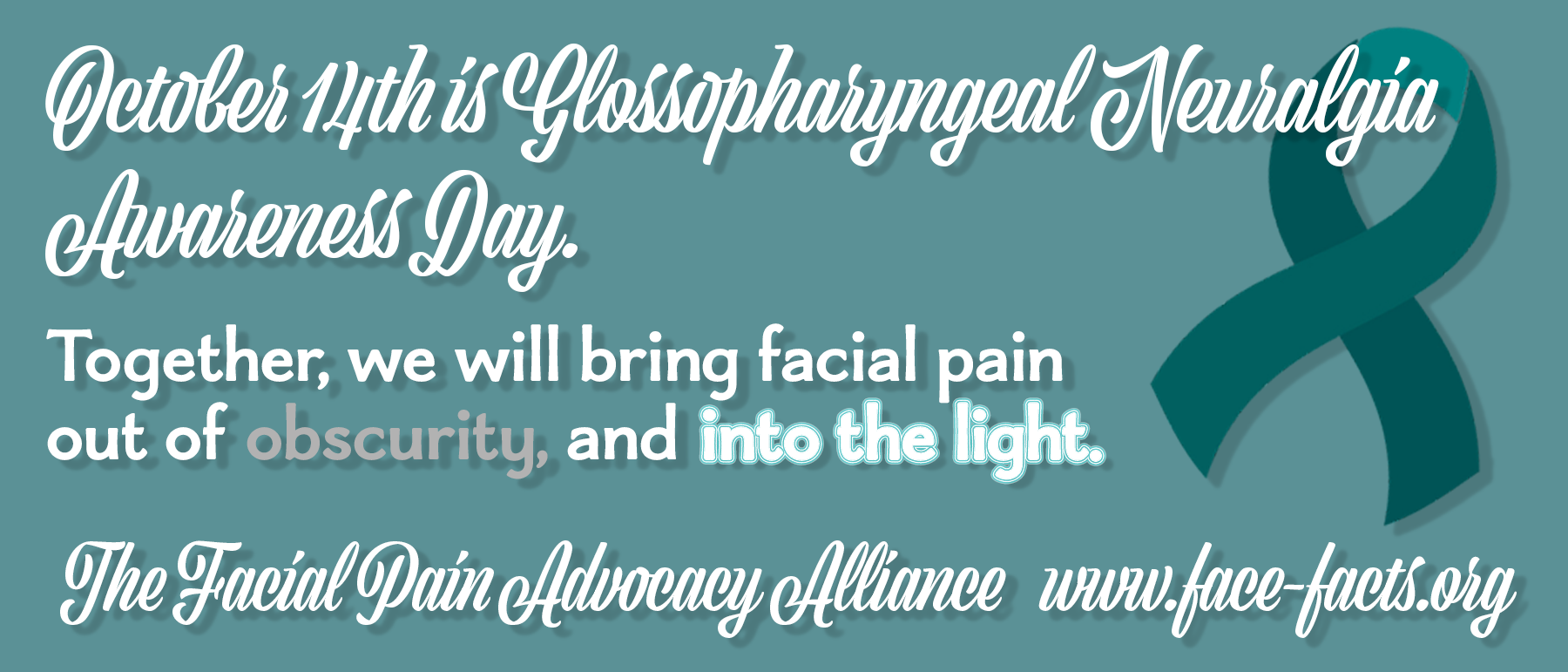Last week, members of the facial pain community observed Trigeminal Neuralgia (TN) Awareness Day for the fifth consecutive year. Every October 7th since 2013, we have turned our Facebook profile pictures teal, shared our personal stories of tribulations and triumphs, posted videos and memes, and raised money for various facial pain endeavors. To the credit of the thousands of you who have supported TN Awareness Day in that half decade, awareness of TN is growing.
However, there is a problem. TN is not the only neuropathic facial pain condition. There is a host of other facial pain conditions that have never been individually recognized or singled out for recognition by any facial pain organization. Because they are so rare, those who have these conditions have had to reside under the umbrella of TN in order to find any community support or recognition. That is, until now.
FPAA is serious about supporting all facial pain patients. We don’t just pay lip service to the inclusivity of the term “facial pain.” By creating Facial Pain Awareness Month, we are proudly giving voice to these other facial pain conditions: geniculate neuralgia, glossopharyngeal neuralgia, anesthesia dolorosa, cluster headache, paroxysmal hemicrania, SUNCT and SUNA.
Please allow me to introduce Glossopharyngeal Neuralgia Awareness Day on October 14th. That’s Saturday!
What is Glossopharyngeal Neuralgia?
Definition
The condition of glossopharyngeal neuralgia (GPN) was first described by Weisenburg (1910)1. GPN is characterized by severe, paroxysmal episodes of pain localized to the external ear canal, the base of the tongue, the tonsil or the area beneath the angle of the jaw. It is caused by a malfunction of the glossopharyngeal (IX) cranial nerve. The pain is usually described as sharp, stabbing, and maybe triggered by swallowing, coughing, talking, or chewing.

Causes
GPN is most often caused by a normal artery or vein putting pressure on the glossopharyngeal (IX) cranial nerve at the root entry zone of the brainstem.
In rare cases GPN can be associated with hemodynamic instability such as arrhythmias, hypotension, syncope, and cardiac arrest.
GPN can also occur as a result of:
- multiple sclerosis or a similar disorder that damages the myelin sheath protecting certain nerves
- a tumor compressing the glossopharyngeal nerve.
- a brain lesion or other abnormalities
- surgical injuries
- stroke
- facial trauma
Social Media Awareness
Click on the image of the overlay of your choice to create a GN Awareness Day social media profile picture.
Or right-click on the image below to save the image for use as a social media profile picture.




